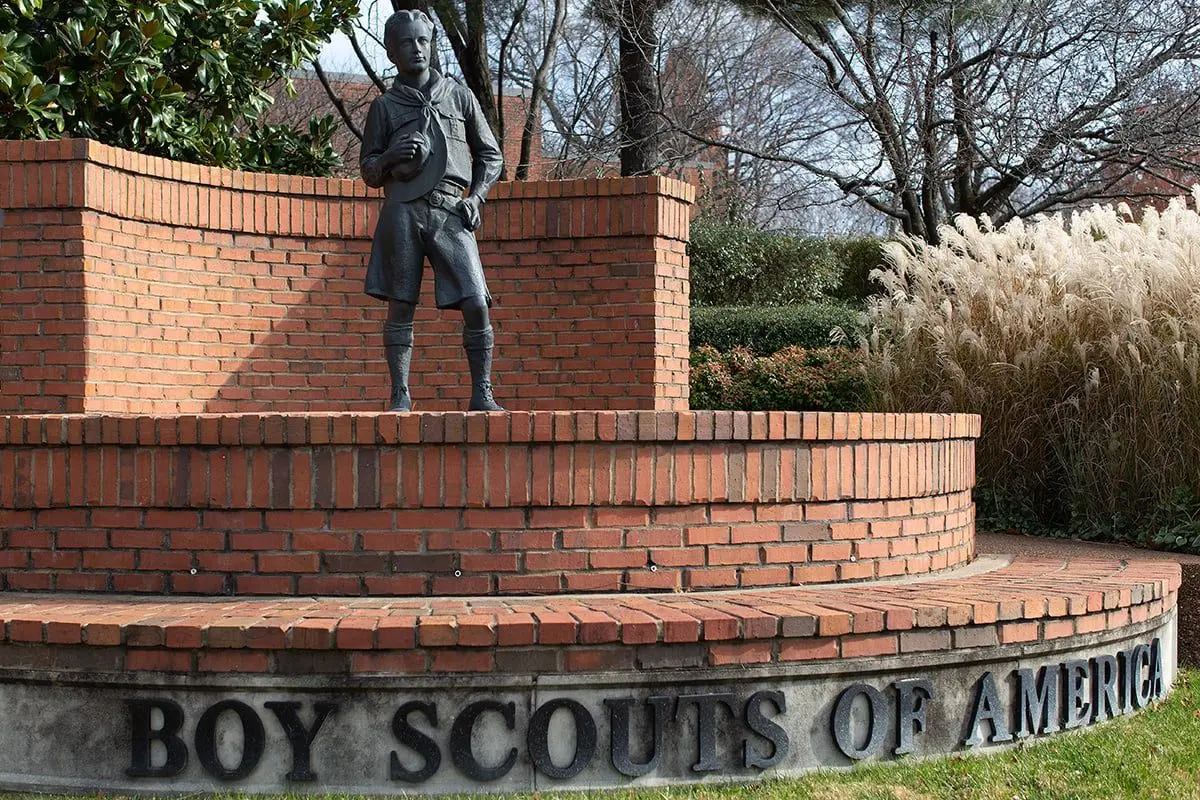
By Sam Hodges/UM News
The United Methodist Church will continue to partner with the Boy Scouts of America but in a new relationship that should lighten the load for local churches.
That’s a message that denomination leaders are working to get across after a difficult two years that has included the BSA’s child sex abuse-related bankruptcy proceeding and the pandemic.
“We think that Scouting is important ministry,” said Bishop John Schol, during a June 16 webinar for United Methodists interested in the denomination’s future with Scouting. “We want to do everything we can to grow Scouting through The United Methodist Church.”
But Schol and other United Methodist leaders are just as emphatic that The United Methodist Church’s partnership with the BSA is entering a new era.
Going away is the practice of local churches serving as chartering organizations for Scouting groups. Instead, churches will have the option of entering into an affiliation agreement. Essentially, they will be promising to provide space and lots of support to Scouting groups, but supervisory responsibility will rest with local BSA Councils.
“We looked for a new vision of relationship,” said Steven Scheid, director of Scouting Ministry for United Methodist Men, in a press release. “This one is one that will last for the next several generations.”
More about BSA partnership
The United Methodist Church and predecessor denominations have been a partner to the BSA for more than 100 years. Many local churches have not only been the headquarters for Scouting troops and packs, but also have recruited and screened adult leaders.
At the end of May, about 6,600 Scouting units were chartered by United Methodist churches in the U.S. The denomination remains the largest partner of BSA programs.
But as recently as 2020, just over 10,000 such chartering relationships existed between Scouting groups and United Methodist churches.
The pandemic was a factor in the decline, causing some churches to close buildings for more than a year and re-evaluate programming. Scouting groups faced their own COVID-related operational struggles. That was particularly true of Cub Scouts, given that Zoom gatherings with younger kids proved especially hard to pull off, Scheid told UM News.
Another factor was the struggle of the BSA just to survive.
In February 2020, a few weeks before the pandemic gripped the U.S., the BSA filed for bankruptcy due to the growing number of lawsuits from men alleging that they had been sexually abused while in Scouting.
As the BSA entered bankruptcy proceedings, seeking to reorganize and carry on, United Methodist leaders formed a committee to represent the denomination’s interests as a longtime BSA partner.
Church leaders have stressed that dealing fairly and compassionately with abuse survivors has been and remains their No. 1 concern. But they also worried about liability exposure for local United Methodist churches that chartered Scouting groups where abuse was alleged to have occurred.
United Methodist leaders expressed frustration with the BSA at points during the negotiations. But late last year, as part of the BSA reorganization plan, United Methodist leaders worked it out for U.S. annual conferences of The United Methodist Church to pay $30 million into a fund for survivors of Scouting-related abuse — with the assurance that local churches would be released from liability.
The settlement also committed the denomination to work in concrete ways toward survivors’ healing, and to review and enhance safety protocols for children and youth spending time on United Methodist church campuses.
UM File photo by Mike DuBose.




